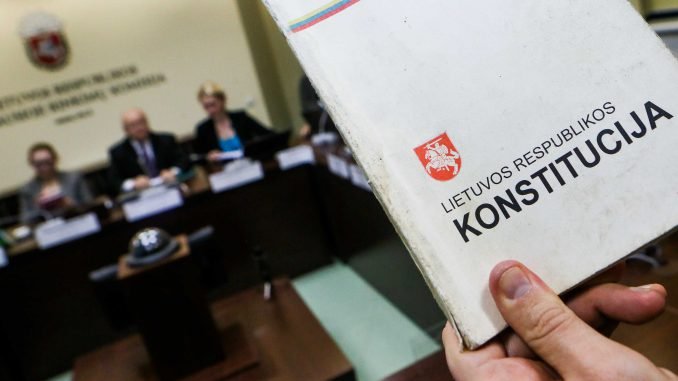
The court analyzed the consistency of the Referendum Law to the Constitution in response to calls from parliament and the Supreme Administrative Court.
Under the current Referendum Law, if a group of citizens collect enough signatures to call a referendum and submits them to the Central Electoral Commission, parliament is obliged to set the date for the poll during its following sitting. If an expert group establishes that the citizens’ demand for a referendum features provisions that may violate the Constitution, parliament must announce this conclusion to the public, but is still under the obligation to call the referendum.
The Seimas of Lithuania turned to the Constitutional Court in the wake of the recent referendum, which suggested a ban on land sale to foreigners and corporate entities. The referendum was held on 29 June but was not accomplished due to low voter turnout. Only 14.98 percent of the electorate came to the polls, while the required voter turnout is at least 50 percent.
The Supreme Administrative Court approached the Constitutional Court after opening hearings into a complaint filed by nationalist unions about the Central Electoral Commission’s decision to refuse registration of a steering group for a referendum on preservation of Lithuania’s national currency, the litas, saying it contained a possible violation of the Constitution.

Be the first to comment